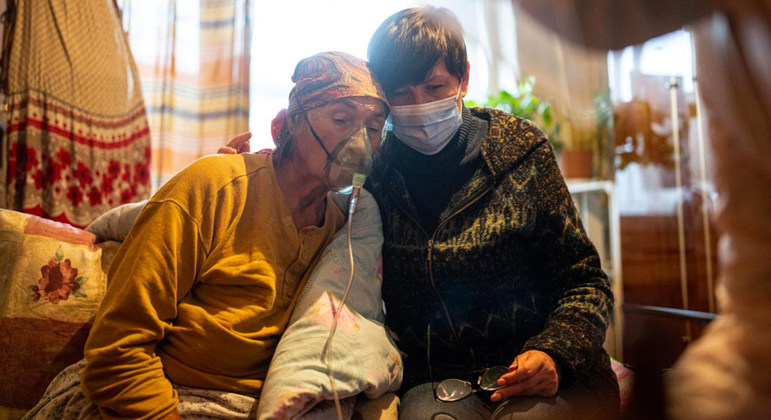In its weekly epidemiological update, the UN health agency noted that infections in Europe had increased by almost twice the global average.
Vaccine review for kids
In a related development, WHO said that is it continuing to review emerging evidence on the need for and timing of vaccinating children with COVID-19 vaccines that have received Emergency Use Listing (EUL).
To date, the agency has issued EULs for eight COVID-19 vaccines.
The statement by the UN agency applies to mRNA COVID-19 vaccines, such as those manufactured by Pfizer and Moderna, which are being authorized for use in children in some countries.
Last month, a WHO panel said that the benefits of the vaccines outweighed the risks for “all age groups”.
Long COVID
The UN agency left it up to individual countries to decide whether to vaccinate youngsters, while also pointing out that serious COVID-19 vaccine shortages persist in developing countries.
“The greatest burden of disease in terms of severe disease and deaths remains among older persons and those with comorbidities… Overall, there are proportionally fewer symptomatic infections, and cases with severe disease and deaths from COVID-19 in children and adolescents, compared with older age groups, WHO said.
It noted also that although children can experience symptoms from “long COVID-19” following a coronavirus infection, the “frequency and characteristics of these conditions are still under investigation”.
A rare inflammatory syndrome which affects the body’s organs has also been identified in children, which can complicate recovery from COVID-19, the WHO added.
Unreached targets
The UN agency’s global vaccination strategy targets call for 40 per cent coverage in every country by the end of 2021 and 70 per cent by the middle of next year.
“These coverage targets were set to ensure an equitable pace of global vaccine rollout and prioritization of those at highest risk. To date, these targets have not yet been achieved”, WHO said.
Coverage targets…have not yet been achieved – WHO
Children largely spared
Latest age-disaggregated data reported to WHO show that children under 15 represent only 0.1 per cent of coronavirus-related deaths globally; this rises to 0.4 per cent for 15 to 24-year-olds.
In its weekly epidemiological review, the UN health agency noted that infections in Europe had increased by almost twice the global average.
The announcement followed a warning on Tuesday from the WHO that Europe could see more than two million coronavirus fatalities by next March.
In the European region’s 53 countries, reported COVID-19 deaths have now passed the 1.5 million mark.
The Western Pacific Region and the Americas also reported a steep rise in deaths from the coronavirus, by 29 and 19 per cent respectively. In contrast, Africa and South-East Asia saw that number fall over the past week.
The United States continued to see the highest numbers of new cases but Germany witnessed a 31 per cent increase in infections and the UK, an 11 per cent spike – with 281,063 new cases.
Latest data from WHO indicates that there have been more than 256 million confirmed cases of COVID-19 and at least 5.1 million deaths worldwide.


